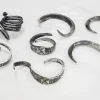
-
Shop by Type
-
Shop by Culture
-
Collections
Home » Blog » Norse & Viking » Geri and Freki: The Loyal Wolves of Odin in Norse Mythology
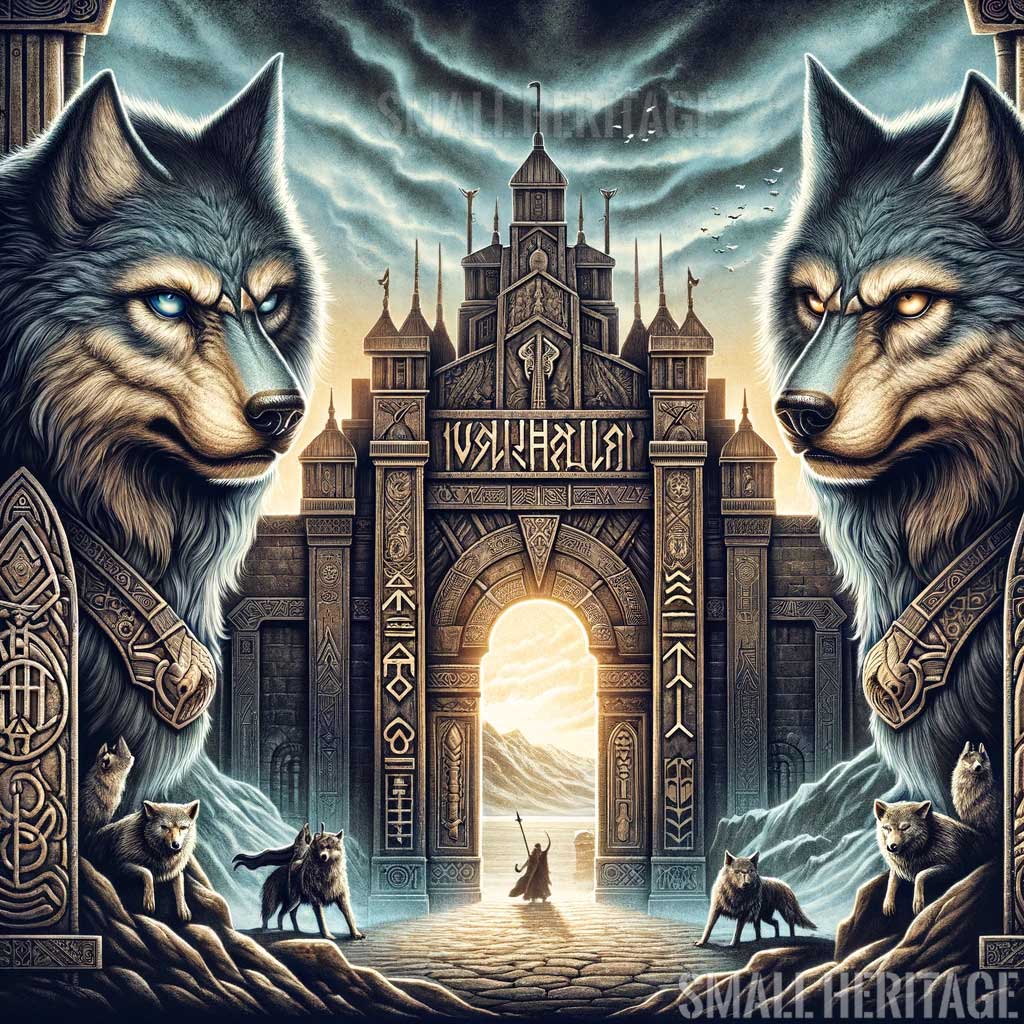
Geri and Freki are the two wolves that accompany Odin, the chief deity in Norse mythology. Their names translate to “Ravenous” and “Greedy,” which aptly describe their insatiable nature. These wolves are not merely pets but are symbolic extensions of Odin’s dominion over the natural and supernatural realms.
The origins of Geri and Freki are deeply embedded in the lore of ancient Norse culture. They are prominently featured in the Prose Edda and the Poetic Edda, key texts that form the backbone of our understanding of Norse mythology. According to these texts, These wolves are always by Odin’s side, emphasizing their integral role in the mythological narrative.
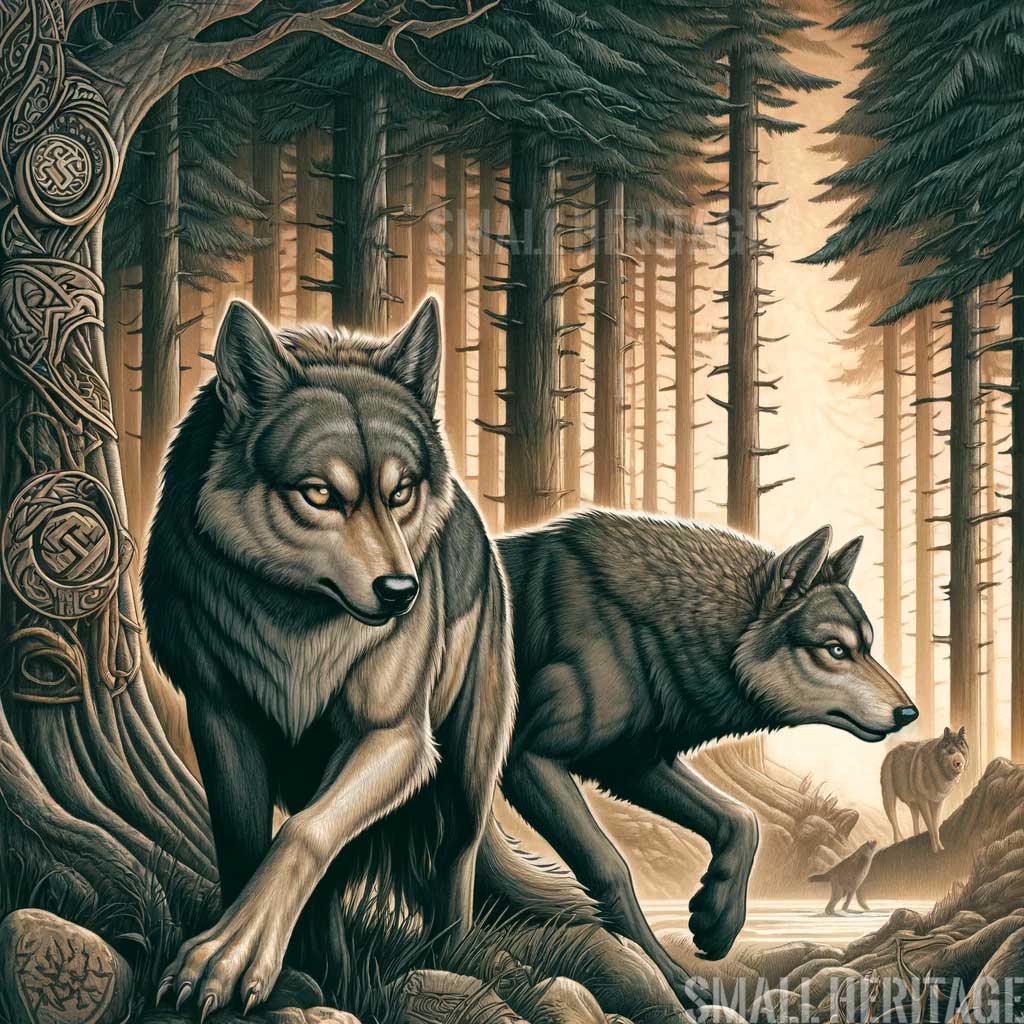
In Norse mythology, wolves are powerful symbols of both creation and destruction. Geri and Freki, as companions to Odin, embody the wild, untamed aspects of nature. Odin’s act of feeding them all the meat placed before him, while he himself subsists on wine, represents a balance between civilization and the primal forces of the wild.
The Prose Edda and the Poetic Edda provide numerous references to Odin’s wolves, portraying them as fierce, loyal, and ever-present guardians. These creatures are depicted not only as symbols of strength and loyalty but also as reminders of the raw power of nature that the Norse revered. For more detailed information on Norse mythology, you can visit the Wikipedia page on Norse mythology.
For the Vikings, wolves were emblematic of strength, ferocity, and the harsh realities of survival. Through their association with Odin, these wolves reinforced these attributes, serving as protectors and warriors in the Viking ethos. Their presence in the lore signifies the divine favor and protection that the Norse warriors sought in their endeavors.
Today, Geri and Freki have transcended their mythological origins to become prominent figures in modern culture. They appear in literature, films, and even video games, symbolizing loyalty, strength, and the wild. These modern depictions continue to honor their mythological roots while appealing to contemporary audiences.
The image of wolves, particularly Geri and Freki, is a popular motif in art and jewelry. These representations often highlight their association with Odin, depicting them as fierce and loyal companions. This artistic portrayal not only preserves their mythological significance but also connects modern individuals with the ancient Viking heritage.
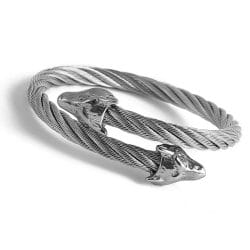
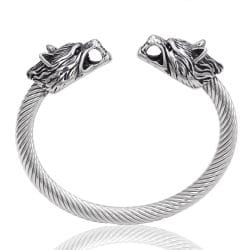
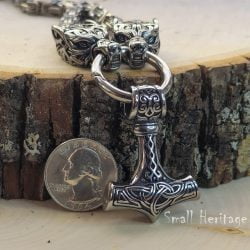
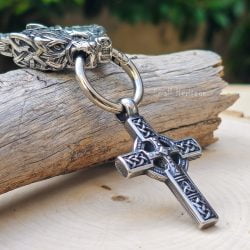
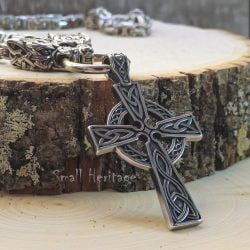
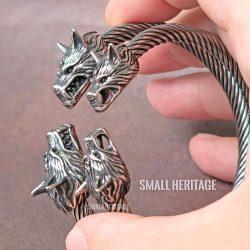
The legacy of Geri and Freki extends far beyond ancient Norse texts. They continue to symbolize the enduring bond between humans and the natural world, the balance between civilization and wilderness, and the timeless values of loyalty and strength. Their story is a testament to the lasting power of myth to convey universal truths and inspire generations.
© 2025 Small Heritage. All rights reserved.
© 2025 Small Heritage. All rights reserved.